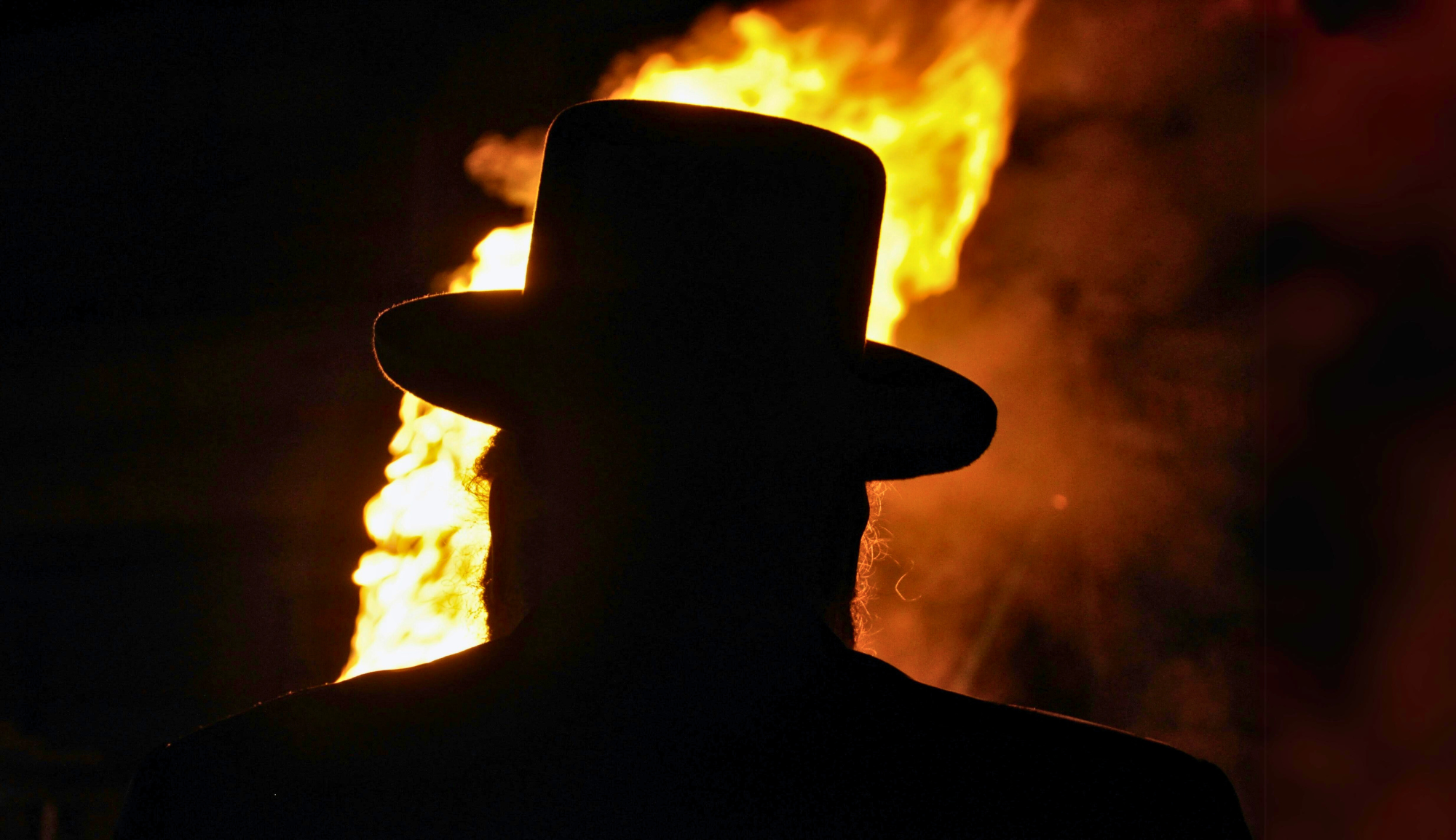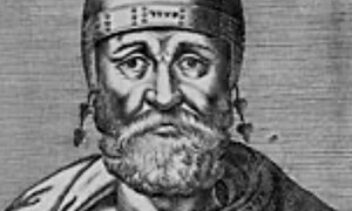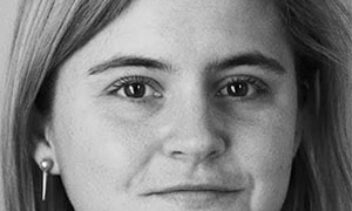Shulem Deen is one of the most prolific writers and thinkers who occupy the complicated space of the once-Orthodox community, and it is clear to any who read his work that he is much more than the sum of his identities. Shulem is a powerful articulator of what meaning-making in a life after Orthodox life can look like, and the struggles and opportunities born in the space of religious movement.
Advice from Shulem Deen: For the Leaving, the Left, and the Parents
For those thinking about leaving, Shulem offers the following words. For someone whose familiarity with Shulen Deen starts with the title of his book and ends with the first page, his position may come as a surprise:
There are people who come to me and they want to discuss the idea of leaving. I have to say, my first impulse when someone says to me, “I want to leave the religious community,” is to say to them, “Don’t.” My first impulse is to say, “Don’t. Don’t Leave.” And that is because I think the cost of leaving is so high that you really have to know why you’re doing it…
The most important thing that I would tell someone who wants to leave is, “Know why not only you’re leaving but also what you’re going to. Know what you have outside of the Hasidic world that you don’t have within it. Have a clear understanding of that, or at least something of an understanding.”
Shulem emphasizes that the question of departure should be intimately connected to the question of arrival. Being uncomfortable in one community—often for good reason—does not mean that leaving that community will bring you happiness, and indeed it may only further complicate an already complicated life. The decision is not a binary going/staying, nor should it be thought of that way, but it should rather be considered in the complicated web of factors that so often accompany it.
For some, the stress of staying so occupies their thinking that the thought of the next step pales in comparison. Shulem reflects on a childhood friend of his, a brilliant student who was unhappy in New Square, and considered going to the US military, where he would be able to find a circumscribed social community. After Shulem urged him to think about college, this brilliant, unhappy Hasid ended up attending Cornell. Shulem believes that those considering leaving need to think more broadly about their goals:
You need to have some sense of what you want to be in the world, what you want to do, but also what you want to be. What’s your dream life, aside from the fact that you no longer have to keep kosher and shabbos and those things? What positive element of living a secular life is going to keep you going? What’s going to inspire you? What’s going to give you the motivation to get up every morning? I think that is the crucial question that somebody needs to answer.
For those that have left, Shulem is just as sensitive in his dual consideration. While respect for the world of one’s origins may be important, respect must be bi-directional:
Wear a yarmulke, be respectful, but my advice to people who leave is in fact, respect is not a one-way street. You do not have to always accommodate their requests if they do not accommodate yours … if you want to have a healthy relationship, then it requires both sides to accept the other side…
I’ll give you an example. One of the things that I’ve made a point of is that when I meet with my family, I will sometimes wear a yarmulke and sometimes not. The reason I do that is because I need them to know that I do not wear a yarmulke generally, and I’m not going to always wear a yarmulke just because I’m around them and I need to respect them. I need them to respect the fact that I don’t wear a yarmulke. Now, I wouldn’t walk into a shul without a yarmulke, but that’s also a bit because I’ll get thrown out … I think shuls should be accepting of people who walk in without yarmulkes. You can suggest, “If you’re looking for a yarmulke there are some on the table there,” but the moment you say, “You need to do X,” that’s the moment the person leaves.
For parents, Shulem maintains his characteristic balance:
Sometimes the child is simply not going to fit the mold and you need to accept that, and you need to accept that whatever level of attachment they choose is something that you have to be okay with, and then the child can choose that level of attachment. But the moment you say, “No, you can’t do this…” You can say, “I don’t mind if you don’t wear a yarmulke, but you cannot get a tattoo,” or, “I don’t mind if you get a tattoo, but,” and here’s a big one, “you can’t marry a non-Jewish person,” or, “I don’t mind if you marry a non-Jewish person, but you cannot be openly gay. You can’t marry a person of your own gender.” The moment you say this, then your child no longer feels that they can live in your—not even live in your world. Certainly they can’t live in your world, but they can’t even maintain a healthy attachment to it, because fundamentally you are opposed to something that they are fundamentally not only in favor of but something they need.
Whether you agree or disagree, Shulem’s voice is powerful, and his experience with and commitment to these issues demand serious consideration.
The Case for Jewish Kinship: Jewishness for the post-Orthodox
Shulem is powerfully articulate when it comes to what is perhaps the core issue of life after Orthodoxy: What is Jewish identity, for those whose religious observance undergoes radical change? How does one grow up with a Jewish identity strongly identified with Orthodoxy, and still maintain an active sense of Jewish identity after leaving Orthodoxy? In his interview with 18Forty, Shulem reflects on this identity:
David Bashevkin: What does your Jewishness mean to you now?
Shulem Deen: I got this question a lot over the years, and I find that my answer to this has changed over time, and this is interesting to me. But I think my answer now is: Jewishness to me is the most important aspect of my identity. There is no other thing that is as important to me as my Jewishness … I would have to say it’s a connection to the myth of shared ancestry. I think primarily that’s what it would be: the myth of family. The myth that we as a people are not just a religious community, but also a family. The Torah doesn’t refer to Jews as people of a certain faith, the Torah refers to Jews as the B’nei Yisrael, the children of Israel, or Beit Yaakov, the house of Jacob … To me that’s one thing that I just cannot ever see as unimportant. It’s simply part of me. It’s something that I deeply value. The implications of that may be a bigger question, but that’s for another conversation.
Shulem, in a piece in the Forward, speaks to his feelings on this complicated need:
Our people had not only kings, prophets, teachers and heretics, but also an origin myth of common ancestry…Myths convey truths as metaphor, not history, and in this case, the myth is a powerful one. We grew from a small clan to a tribe, then to a nation; then we dispersed across the globe, absorbed people from other nations and lost many of our own to others, but the myth of Abraham, Isaac and Jacob as not only characters in an ancient tale but also our very forefathers is deeply embedded in the Jewish consciousness. What binds me to Moses Maimonides and Albert Einstein is not a shared ethnicity or religious beliefs; it’s a mythic kinship that is real even if ahistorical and nonbiological. It is so because Jews, in their collective consciousness, believe it to be so. The noted scholar Rabbi Adin Steinsaltz, in his book “We Jews,” defines Jewishness simply and precisely thus: Jews are a family. “The connection of a Jew to his people,” he writes, “is not dependent on his being in any particular place or on some religious or cultural tie…. [It] does not necessarily involve anything more than the practical and emotional relations of kinship.” A family, not a religious community. A family, not a nationality. A family, not an ethnicity. I cannot repudiate my Jewishness, even if I should want to, just as I cannot repudiate my ties to my parents and siblings.
For Shulem, this sense of kinship comes not only with a sense of belonging to this mythic community, but a moral responsibility to and for issues within the community. In a Forward piece that concluded a year of blogging about the ‘heretical life’, he says:
An appreciation for kinship also demands something. It is up to us to speak up about the dangers of toxic ideologies, of religious fundamentalism, of drunken nationalistic hubris or the dangerous mix of them all. It is up to us to argue, vigorously, tenaciously, for an ethos that benefits the family of humanity beyond our own. “I am for my beloved, and my beloved is for me”—a declaration of love and loyalty, but not moral blindness. To the contrary, our kinship is what gives us permission to speak, even when the conversations are difficult. Our kinship gives our voice its strength, allows us to say,” Brother, sister, listen to me.” Kinship isn’t easy, nor is it an imperative. Rather, it is an existential, if mythic, reality that we can choose to override or embrace. To be consciously Jewish, then, is to embrace it, to accept both the gift and the burden.
Within or without Orthodox life, Shulem Deen maintains his belief and commitment to the idea of love for fellow Jew. This love reflects a choice to believe in a mythic reality, a reality in which Jews constitute a collective identity, a family that shares one story. Belonging to a particular, for Shulem, can help one move beyond the particular to the universal. In his words, from the Forward:
Making too much of kin and tribe brings a risk of parochialism, but perhaps a universalist ethos need not contradict it; rather, it can be inspired by it. Jewish kinship is to maintain the best of our tribal instincts while radiating them outward to the rest of society. The concept of ahavat yisrael — love for your fellow Jew — is valuable not because your fellow Jew is more special, but because by your best attitudes toward your own, you learn what you can do for those beyond.
Shulem Deen is a powerful writer, thinker, and speaker, and a dynamic articulator on the possibilities and challenges of a deeply engaged Jewish life lived outside of the Orthodox community. We end with his words, in the Forward:
My own ahavat yisrael — my love and caring and feelings of kinship to other Jews—isn’t perfect … But so it is with family: We get frustrated, sometimes angry, occasionally declare we want nothing to do with it, but for most of us, something calls us to return…
I am for them and they are for me. I accept both the gift and the burden. And with that, I am a Jew.
For more on this topic, visit 18forty.org/otd






